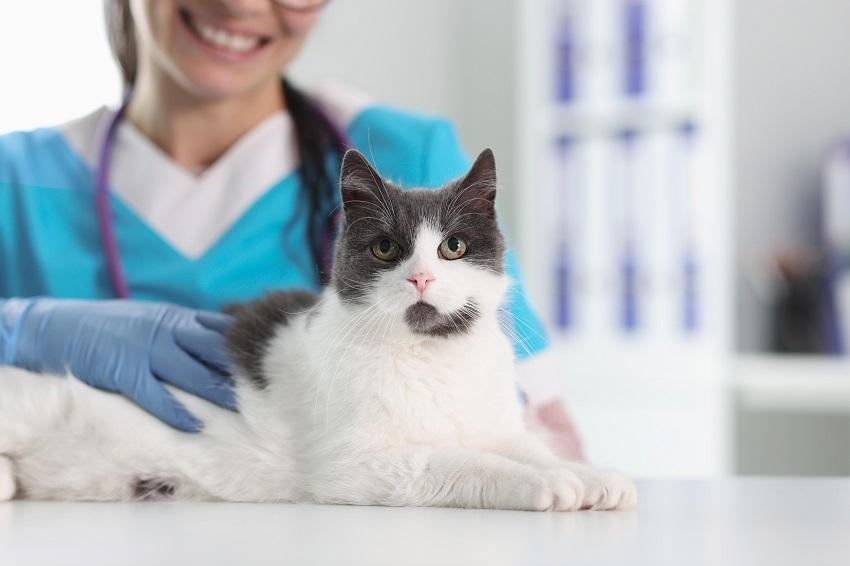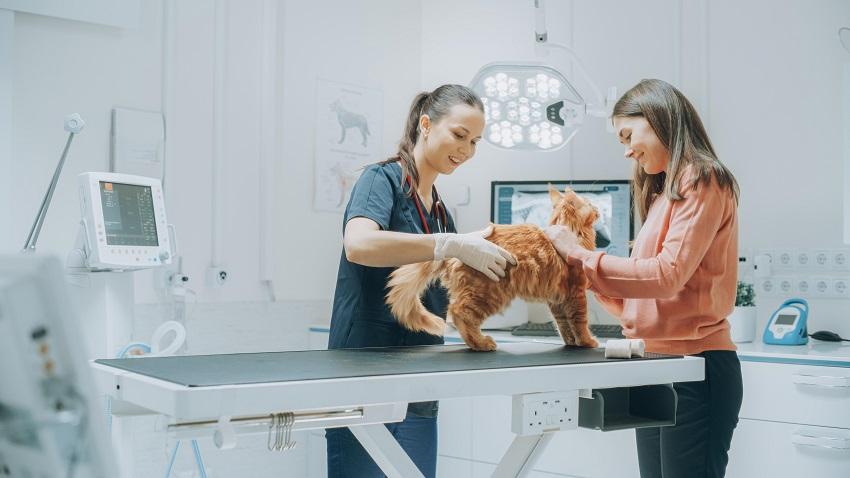Owning a cat means you must be ready for responsibilities and meet its needs for love, food, and health. As an owner, you know that you need to cat vet visits, either for vaccinations or routine health check-ups.
However, the question arises: how often should owners take their cats to the vet?
According to Daily Paw, the American Animal Hospital Association recommends that all pets see a vet at least annually, perhaps more if dogs or cats have specific health needs.
Randy Wheeler, DVM, an experienced veterinarian and executive director of the Iowa Veterinary Medical Association, says there’s no rule for how often cats should see a vet because it depends on various factors: age, lifestyle, and where the pet lives.
“A good working relationship with a vet is essential because they can advise on how often a pet needs check-ups. Such a collaborative relationship will yield long-term benefits if a cat experiences more serious health conditions,” says Wheeler.
Considering these factors, here’s a general guide on when you should take your cat to the vet:
Kitten Vet Visit
New cat owners are usually bound by agreements with shelters or breeders to take their kittens to the vet soon after adoption.
Take this opportunity to start a relationship with your chosen vet and allow them to observe and examine the kitten’s health from an early age.
“Vaccinations will begin when the kitten is 6-8 weeks old, depending on lifestyle, family history, and prevalent diseases in your area,” says Wheeler.
This first vaccination will include shots for rhinotracheitis, calicivirus, and panleukopenia.
About three or four weeks later, kittens will receive the second vaccine, repeated every three or four weeks until they are about 4 months old.
“Around three months is when the rabies vaccine begins,” says Wheeler, with boosters every year and then every three years or as recommended by the vet.
The early visits to the vet will also include a physical examination and discussions about flea prevention, says Wheeler.
This is also the right time for you to seek advice from the vet on behavior or questions about feeding and training your feline friend.
Soon after that, around six months, cats will be ready for spaying or neutering.
Adult Cat Vet Visits

Vaccine boosters will continue when the pet is considered an adult, typically over 1 year old.
The vet will inquire about your cat’s lifestyle, especially whether it’s an indoor-only or indoor-outdoor cat.
Outdoor or indoor-outdoor cats face more risks outside, such as parasites and predators.
Increased risks for cats that like to go outdoors also include diseases like feline leukemia, which spreads from cat to cat. This vaccine will be offered to cats when they are still kittens and will be repeated throughout the cat’s life.
Recurring visits will also give the vet a chance to examine the cat’s teeth, along with providing a general physical examination and advice on preventive care. “I can’t emphasize enough about dental care,” says Wheeler.
Dental cleaning helps prevent bad breath, and you must ensure your pet’s teeth and gums are healthy so the cat doesn’t have difficulty eating or experiencing pain.
Vaccines, like the rabies vaccine, will also continue into adulthood. “Vets will likely recommend it every one to three years,” says Wheeler.
Senior Cats Vet Visit
When your feline friend has entered the senior ages around 8-10 years old, it would be best to have a cat vet visit very often.
Report any changes in behavior to the veterinarian, regardless of your cat’s age; the discussion becomes more crucial as the cat reaches old age.
“If a cat is drinking more water than usual, for example, it could indicate more significant issues like kidney problems or diabetes,” says Wheeler.
Is it necessary for cats to undergo examinations by a veterinarian? The right time and the best method for taking a cat to the vet are crucial. Bringing your companion to the animal clinic when they are unwell is essential for diagnosing potential health issues.
Additionally, during kitten health checks, the veterinarian can provide guidance on changes to your cat’s diet or vaccinations that may be needed in the future.
Visiting the vet will keep your cat healthy and free from stress. Regular cat vet visits will help you identify health issues more quickly.
Going to the veterinarian also provides essential information about behavior or the proper way to care for your cat. Ensuring your cat’s well-being is a top priority.
Regular veterinary check-ups play a crucial role in early detection of health issues. For expert advice and personalized care, consult Gen’s Pet Shop.
Keep your feline friend happy and healthy.

